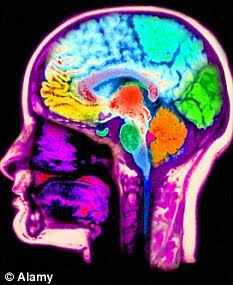 MobbingDefinition
MobbingDefinition• Mobbing is a term referring to a type of animal behaviour. A newer use refers to a group behavioural phenomenon in workplaces.
•
Mobbing as a human bullying behaviourMobbing in the context of human beings either means
bullying of an individual by a group in any context by (Governmental Department, or Professional Regulatory Bodies, Judiciary, Police etc…), or specifically any workplace bullying.
• Though the English word
mob denotes a crowd, often in a destructive or hostile mood, German, Polish, Italian and several other European languages have adopted mobbing as a
loanword to describe all forms of bullying including that by single persons. The resultant German verb
mobben can also be used for physical attacks, calumny against
teachers on the Internet and intimidation by superiors, with an emphasis on the victims' continuous fear rather than the perpetrators' will to exclude them. The word may thus be a
false friend in translation back into English, where mobbing in its primary sense denotes a disorderly gathering by a crowd and in workplace psychology narrowly refers to "ganging up" by others to
harass and
intimidate an individual.
• Research into the phenomenon was pioneered in the 1980s by
German-born Swedish
scientist Heinz Leymann, who borrowed the term from animal behaviour due to it describing perfectly how a group can attack an individual based only on the negative covert communications from the group".
• In the book MOBBING: Emotional Abuse in the American Workplace, the authors say that mobbing is typically found in work environments that have poorly organized production and/or working methods and incapable or inattentive management and that mobbing victims are usually "exceptional individuals who demonstrated intelligence, competence, creativity, integrity, accomplishment and dedication".
Mobbing in Scots law• Under the law of Scotland, mobbing, also known as mobbing and rioting, is the formation of a mob engaged in disorderly and criminal behaviour. The crime occurs when a group combines to the alarm of the public "for an illegal purpose, or in order to carry out a legal purpose by illegal means, e.g. violence or intimidation”. This common purpose distinguishes it from a
breach of the peace.For any organisation enjoying a certain empowering status over a group of people and wishes to establish a regime to practice Mobbing over them, it has to secure a circle of similar authorities in support of such a regime [e.g. other Government Departments, Professional Regulatory Bodies, Judicial System through Courts, Police etc…]; because if that regime is restricted to one Hierarchical Department it would not be able to survive to apply that Mobbing Regime because it would be exposed and be defeated if challenged for example by the Judiciary.
Therefore, the most dangerous confrontation a Mobbing Regime would have to face is with the Legal Judiciary System; the 2 main reasons for that are:-
That such regime could be defeated by hefty damages and consequently made public. This would act as a deterrent for others.
A precedent legal case would occur and make such regime a vulnerable practice for the organization where mobbing occurred.
Consequently for such a regime to survive it is essential for it to secure a circle of other Authorities which will continue to support it.
If the Legal System has been successfully alienated from justice, this should be the biggest achievement of that regime enabling it to survive; having secured that side the practice of such regime becomes not only unopposed but would enjoy the support by coercing other authorities to practice the same; and if an authority refuses to be coerced into such policies it risks isolation and marginalisation.
GOVERNMENTAL BODIESE.g. the Department of Health in United Kingdom, Europe
One of the instrumental policies which has been deep rooted in the Department of Health is the Alert Letter System which has been abused on innocent doctors. This system, of Alert Letters which is still in existence is a live example of the Mobbing Regime that the Department of Health is practising. When an employee has been issued with an alert letter system or threatened by it, it would not only means to him the extermination of his career but the system serves as a deterrent to others in the profession that fails to challenge it.
PROFESSIONAL REGULATORY BODIESE.g. General Medical Council
This organisation is influenced by NHS (National Health Service) Trusts Administrators, Postgraduate Deaneries, and Primary NHS Care Trusts Administrators and government. With the power to discipline, restrict or suspend the practitioner and in particular to label its practitioners with Mental Health Issues is a part of the Mobbing Culture and Practice.
ADMINISTRATION OF JUSTICEIn a biased system, claimants face hefty financial penalties when they lose in courts as all the huge legal fees have to be paid.
The CPR [Civil Proceedings Rule] which has been altered since 1999 reflects the Mobbing Culture successfully reaching the Courts; because they are fundamentally flawed. This has been highlighted in 2 Parts:-
In Part 1: The Overriding Objectives
This overriding objective of these CPR applied only to Judges and to Solicitors and does not apply to the victims.
In Part 2:
That it did turn the table on a fundamental security the Public had if costs were awarded against the victims.
Before the 1999 alterations were made to the CPR (Civil Proceeding Rules) all solicitors bills were subject to a Judiciary Taxation [detailed justification of every penny the winning solicitor claimed]. The Bill of Costs of Solicitors requested that Solicitors do disclose all the evidence regarding their costs which details of has been concealed up to the moment the Judgment was given.
Despite this, the Solicitors Rules are that there is no valid bill of costs until that bill is taxed by the Taxation Judge; under the new CPR, the Judge who attended the trial of the case orders the costs without going through any of the motions of Taxation. This puts victims of claims under serious threats to lose excessive monies if they lost in the courts . It is well known that Perjury is rife in negligence claims.
Another issue that may influence the justice are variable factors eg religious affiliations, freemasonry etc. It is known that religion is politics dressed in drag and yet no religious affiliations are declared by those in judicial positions or sitting at tribunals or fitness to practice hearings. Even when extreme religious views are present and barristers ask for the panellist to recuse himself, they do not do so.
POLICE AND THE CROWN PROSECUTIONIt appears that the Police are integrated in that policy of Mobbing . The Mobbing Regime could be used in a criminal act e.g. Committing Perjury in Courts.The fact that Perjury is known to have been committed by the Police for the last 30 years in the British Courts [as stated by the Judge in
Cinpress v Melea] proves that the theory is correct.
Because the Police are the first door of call in “Perjury” which is essentially a criminal act it is crucial that the Police should be integrated in that Mobbing Regime.
For civil cases, the Attorney General has refused to intervene in allegations of perjury unless the judiciary reports it.
WHISTELBLOWINGAny attempt to alert an organisation of wrongdoings by its members results in organisational reprisals. We will be fooling ourselves to believe that any system of Whistleblowing could be fair and adequate to protect the person unless organised Mobbing is recognized for what it is and cultural attitudes are changed.
CONCLUSIONIf Organised Mobbing has succeeded to coerce the Judiciary and the Police, this would abolish any challenges to its practice and it would prevail. Unless both the Judiciary ( rule with confidence imposing hefty fines to Mobbers); the Police and Crown Prosecution Service ( reprimand with jail sentences perjurers) have been successfully detached from the circle of the Practice of Mobbing, all efforts to address justice for whistleblowers would fail and the Mobbing Culture will continue to spread to all corners of the land with serious repercussions to the Tax Payer and a continuous oppression to the British People.
Written by Dr Mohammad Al Ruby for Doctors4Justice.net







